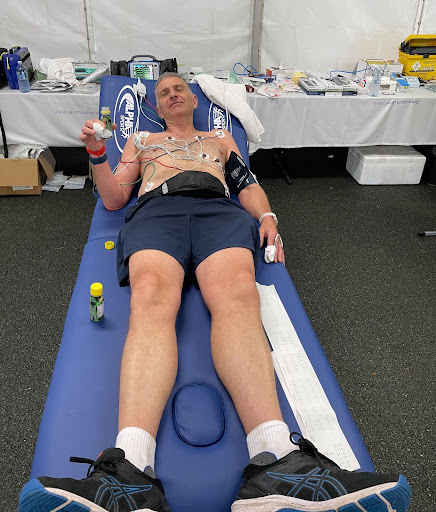
How a heart scare taught me a handy lesson on travel insurance
Like many lucky others, I am on the road this winter, and travel insurance is a crucial consideration.
Given the big numbers of people on vacation here and abroad, a lesson I’ve just learnt around pre-existing conditions may be of interest.
I was once advised whenever you've paid for an international flight or trip to finalise the travel insurance immediately.
The rationale was: you might break a leg or meet another misfortune that stops travel, and you might just be covered.
I'd now like to be able to buy a beer for whoever gave me this advice, as it's just proved very helpful.
I preface the story below by saying I would never go O/S, including NZ, without travel insurance, and I hope you wouldn't either.
Too much costly stuff can go wrong, and generally compared to the cost of travel the premiums, at least until recently, have been reasonable.
But what if you fall foul of the small print, especially when it comes to that dreaded little phrase 'pre-existing conditions'?
I have been blessed because, at least until recently, I have had no definable pre-existing conditions (apart from hayfever, which doesn't count).
I'm off to Ireland and parts of Europe next month for a couple of weeks and as soon as I'd paid for the costly flights ($3100), I found and paid for a basic travel insurance policy.
It was enough to return my mortal remains if things turned really pear-shaped and provided enough cover for less irritating events.
Then three weeks ago, I pushed the boat a little too far out. In the past few years, I have begun to run two marathons a year from not having the slightest ambition to do so.
After the 42kms of the Gold Coast Marathon, I felt not surprisingly a little weary, even giddy - and I lay down for a few minutes. It took almost 45 mins before I could stand up.
I was dizzily wandering to my hotel when I passed a first aid tent and stopped by for a reviving cup of tea and a biscuit.
Instead, within minutes of being checked with stethoscopes and various probes, I was whisked off behind the scenes to what appeared to be a high-tech M*A*S*H* style unit for distressed runners.
A range of tests soon showed I was suffering from a heart condition I'd never heard of called atrial fibrillation or AF. It's not uncommon and not necessarily serious, but it has to be taken seriously. (Always take your GP's advice.)
In short, they advised me to go to a hospital ED, but I elected to fly home. So far, so good, as I can monitor the condition through my GP and my smartwatch.
So how does that affect my travel insurance? Well I wondered, if you develop a 'condition' after you have taken out a policy, do you have to declare it?
I took some advice from insurance brokers who know something about these policies, and their advice was not very helpful: "Read the fine print."
I did, and it wasn't clear, so I emailed the insurer, and they sent this reply: "If you have bought your policy before the medical condition existed and it was not under investigation or diagnosed at the time, then it is automatically covered."
I take this to mean I am OK for now, but of course next time I choose to get travel insurance, I shall have to declare ‘AF’ even though my heart is beating quite back to normal and has done since the day of the run.
What's been your experience with travel insurance and, in particular, of pre-existing conditions fine print?
It doesn't have to be all bad news. You might have had a good experience!
Any information contained in this communication is general advice, it does not take into account your individual circumstances, objectives, financial situation or needs.

